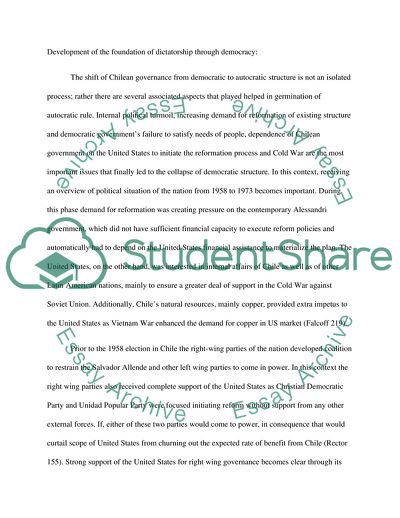Cite this document
(Legacy of Chiles Dictatorship on Contemporary Chilean Society Essay, n.d.)
Legacy of Chiles Dictatorship on Contemporary Chilean Society Essay. https://studentshare.org/politics/1733400-the-legacy-of-chiles-dictatorship-1973-1990-on-contemporary-chilean-society-and-the-role-of-human-rights-organizations-in-chile-today
Legacy of Chiles Dictatorship on Contemporary Chilean Society Essay. https://studentshare.org/politics/1733400-the-legacy-of-chiles-dictatorship-1973-1990-on-contemporary-chilean-society-and-the-role-of-human-rights-organizations-in-chile-today
(Legacy of Chiles Dictatorship on Contemporary Chilean Society Essay)
Legacy of Chiles Dictatorship on Contemporary Chilean Society Essay. https://studentshare.org/politics/1733400-the-legacy-of-chiles-dictatorship-1973-1990-on-contemporary-chilean-society-and-the-role-of-human-rights-organizations-in-chile-today.
Legacy of Chiles Dictatorship on Contemporary Chilean Society Essay. https://studentshare.org/politics/1733400-the-legacy-of-chiles-dictatorship-1973-1990-on-contemporary-chilean-society-and-the-role-of-human-rights-organizations-in-chile-today.
“Legacy of Chiles Dictatorship on Contemporary Chilean Society Essay”. https://studentshare.org/politics/1733400-the-legacy-of-chiles-dictatorship-1973-1990-on-contemporary-chilean-society-and-the-role-of-human-rights-organizations-in-chile-today.


